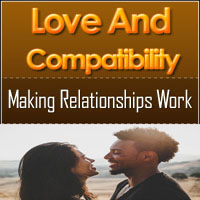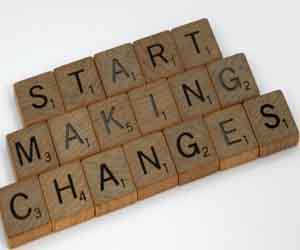


Nurturing Healthy Futures

Family planning is a multifaceted approach that empowers individuals and couples to make informed decisions about when and how to expand their families. It encompasses various methods, including contraception, fertility awareness, and preconception health. Family planning is not only a fundamental human right but also a key driver of societal well-being. In this article, we explore the significance of family planning and the impact it has on individuals, families, and society as a whole.
Empowering Individual Choice
Family planning fundamentally rests on the principle of autonomy and personal choice. It acknowledges that people should have the ability to decide if, when, and how many children they want to have. This decision-making power is fundamental for several reasons:
Reproductive Health: Family planning promotes reproductive health by ensuring that pregnancies occur when individuals are physically, emotionally, and financially prepared to welcome a child.
Gender Equality: It plays a vital role in gender equality, as it empowers women to take control of their reproductive lives and make choices that align with their aspirations and well-being.
Economic Stability: Planning families can lead to better economic stability, as individuals can pursue education and career opportunities without being constrained by unplanned or unwanted pregnancies.
Reducing Maternal Mortality: Family planning reduces the risk of maternal mortality by allowing women to space out pregnancies, reducing the health risks associated with frequent childbirth.
The Benefits Of Family Planning
Family planning offers numerous benefits, not just at the individual level, but also for families, communities, and society as a whole:
Healthier Families: Planned pregnancies result in healthier mothers and children, as they receive timely prenatal care and enjoy better overall well-being.
Reduced Poverty: Smaller, well-timed families are often better positioned to escape poverty, as parents can focus on providing for their children's needs more effectively.
Improved Education: Delaying pregnancies can lead to higher educational attainment for both women and their children, as it allows for a greater focus on schooling.
Environmental Sustainability: Family planning plays a role in reducing the impact of population growth on the environment by controlling birth rates.
Social And Economic Progress: By fostering smaller, more economically stable families, family planning contributes to a society's overall social and economic development.
Methods Of Family Planning
Family planning methods encompass a wide range of options, including contraceptives like birth control pills, condoms, intrauterine devices (IUDs), and sterilization. Fertility awareness methods help individuals track their menstrual cycles to identify fertile days. Preconception health is also crucial, ensuring that both partners are in optimal health before conception.
Challenges And Controversies
Despite the many advantages of family planning, it is not without challenges and controversies. Issues such as access to family planning services, cultural and religious beliefs, and misconceptions about contraception can hinder its widespread adoption. Nonetheless, addressing these challenges is vital to ensure that family planning is accessible to all who need it.
Family planning is not just a personal choice but a cornerstone of public health and societal development. It empowers individuals to make informed choices about their reproductive lives, leading to healthier families, economic stability, and social progress. By promoting family planning and overcoming barriers to its access, we can foster a world in which everyone has the opportunity to nurture healthy, fulfilling futures for themselves and their families.
Building Resilient Bonds
 5. Set Realistic Expectations
5. Set Realistic Expectations
Stress can often lead to unrealistic expectations or demands. Recognize when these pressures are causing tension and take steps to reset expectations. Prioritize what truly matters in your relationship and in your life.
6. Prioritize Self-Care
Self-care is vital for managing stress. Encourage each other to engage in activities that promote relaxation, such as exercise, meditation, hobbies, or spending time with friends.
7. Boundaries
Set clear boundaries to prevent stress from overwhelming your relationship. Create space for personal time and individual pursuits. Know when to say no to additional stressors.
8. Seek Professional Help
If stress is severely impacting your relationship and your well-being, consider seeking professional guidance. Couples therapy or counseling can offer valuable strategies for managing stress together.
9. Problem-Solving
When faced with stressors, focus on problem-solving rather than dwelling on the issues. Collaborate on finding solutions and actively work together to address the sources of stress.
10. Celebrate Successes
Acknowledge and celebrate your successes in managing stress together. Overcoming challenges can strengthen your bond and provide a sense of accomplishment.








 For most individuals, the first emotional connections are established within the family. The parent-child bond, in particular, is vital in shaping a person's emotional development. Infants learn to trust and love through their caregivers, and this early connection lays the groundwork for future relationships.
For most individuals, the first emotional connections are established within the family. The parent-child bond, in particular, is vital in shaping a person's emotional development. Infants learn to trust and love through their caregivers, and this early connection lays the groundwork for future relationships.
The emotional connection with one's family doesn't end in childhood. It evolves and matures over time. Siblings, for instance, often share an unbreakable bond that can last a lifetime. These connections offer a sense of belonging and a source of emotional support.
Friendships: Bonds Beyond Blood
Friendships are unique emotional connections. Unlike family, they are chosen connections, often grounded in shared interests, values, and experiences. Friends become confidants, companions, and pillars of support. These relationships offer a different perspective and, in some cases, an even deeper connection than family bonds.
Romantic Relationships: The Most Intimate Connection
Emotional connections in romantic relationships are among the most intense and profound. Partners share their hopes, fears, dreams, and vulnerabilities, forging a deep bond that can weather the storms of life. The quality of the emotional connection in a romantic relationship can significantly impact its longevity and overall satisfaction.
The Impact On Mental Health
Emotional connections have a profound impact on mental health. Strong, positive connections can reduce stress, increase happiness, and contribute to an overall sense of well-being. In contrast, a lack of meaningful emotional connections can lead to feelings of loneliness and depression.
Unveiling Your True Potential
 Why Is Self-Discovery Important?
Why Is Self-Discovery Important?
Clarity Of Purpose: Self-discovery helps you identify your true passions, interests, and purpose in life. It guides you toward a path that aligns with your core values.
Improved Relationships: When you understand yourself better, you can also relate to others more effectively. Self-discovery enhances empathy and communication, leading to healthier and more meaningful relationships.
Enhanced Self-Acceptance: Self-discovery often involves coming to terms with your strengths, weaknesses, and quirks. This self-acceptance promotes a positive self-image and self-esteem.
Personal Growth: The journey of self-discovery is a continuous process of growth and development. It empowers you to become the best version of yourself.
The Path To Self-Discovery
Reflect On Your Values: Begin by examining your core values. What principles are most important to you? Values serve as a compass, guiding your decisions and actions.
Explore Your Interests: Identify your passions and interests. What activities or pursuits make you feel truly alive and engaged? Exploring these interests can lead to a sense of purpose.
Face Your Fears: Self-discovery often involves confronting fears and insecurities. These challenges can provide valuable insights and promote personal growth.
Mindfulness And Self-Reflection: Regular self-reflection and mindfulness practices can deepen your understanding of your thoughts and emotions. Journaling and meditation are useful tools for this purpose.
Building Stronger Relationships
 Trust: Trust is the core of any lasting relationship. When you are honest, you build trust with your partner. It assures them that they can rely on your words and actions.
Trust: Trust is the core of any lasting relationship. When you are honest, you build trust with your partner. It assures them that they can rely on your words and actions.
Emotional Connection: Honest communication creates an emotional bond. It allows you to understand each other on a deeper level, which fosters intimacy.
Conflict Resolution: Honesty is crucial for addressing issues and conflicts. Open and honest communication enables you to resolve disagreements more effectively.
Respect: Being truthful shows respect for your partner's right to know and understand your thoughts and feelings. It avoids manipulation and deceit.
Predictability: Honesty provides a predictable environment in which both partners can feel safe, secure, and understood.
Vulnerability: The Gateway To Intimacy
Vulnerability is about sharing your true self, including your fears, insecurities, and weaknesses, with your partner. It's the willingness to be open and unguarded emotionally. Here's why vulnerability is essential:
Emotional Depth: Vulnerability allows for deeper emotional connections. When you share your true self, you enable your partner to do the same.
Empathy: Being vulnerable helps your partner understand your feelings, making it easier for them to respond with empathy and support.
Conflict Resolution: When both partners are vulnerable, conflicts can be resolved with greater understanding and less defensiveness.
Authenticity: Vulnerability is an essential aspect of authenticity. It allows you to be your true self in the relationship, which is crucial for its health and longevity.
A Changing Landscape
 Yet, as society progresses and embraces diversity, the views on age-gap relationships have evolved. One of the driving factors behind this shift is the recognition that love is complex and cannot be neatly defined by age. People enter into romantic partnerships based on a multitude of factors, such as shared values, emotional connection, and compatibility, not solely age-related considerations.
Yet, as society progresses and embraces diversity, the views on age-gap relationships have evolved. One of the driving factors behind this shift is the recognition that love is complex and cannot be neatly defined by age. People enter into romantic partnerships based on a multitude of factors, such as shared values, emotional connection, and compatibility, not solely age-related considerations.
Media and popular culture have also played a role in normalizing age-gap relationships. High-profile celebrity couples, such as Harrison Ford and Calista Flockhart or Catherine Zeta-Jones and Michael Douglas, have not only brought age-gap relationships into the public eye but have also presented them as genuine and loving unions. These positive representations in the media have helped to reduce some of the stigma surrounding these relationships.
In addition, changes in societal norms have influenced the growing acceptance of age-gap relationships. As gender roles and expectations evolve, more individuals are focusing on building connections and partnerships that fulfill them emotionally and intellectually.